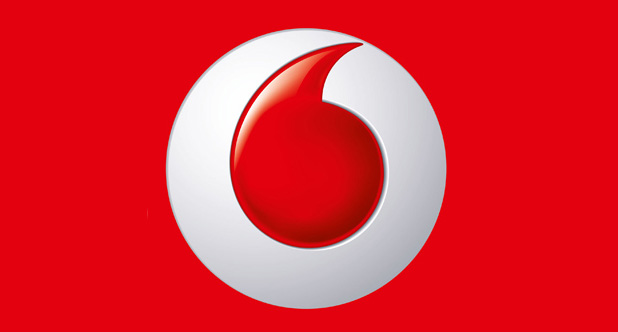|
Getting your Trinity Audio player ready...
|
The UK competition regulator’s concerns about the merger of mobile giant Vodafone and Three UK have been assuaged, after both parties pledged to implement certain remedies.
The Competition and Markets Authority (CMA) announced on Thursday that it has cleared the Vodafone, Three merger, subject to legally binding commitments.
It comes after the CMA in September (after an in-depth Phase 2 investigation) had concluded that the “merger could lead to millions of customers having to pay more”, and harm the position of mobile virtual network operators such as Sky Mobile, Lyca, Lebara and iD Mobile.
![]()
CMA approval
The regulator said at the time that it would consider responses to its provisional findings, and then issue possible remedies, ahead of its final report due on 7 December 2024.
In November the CMA issued its possible remedies, after the regulator’s independent inquiry group investigating the merger and published its Remedies Working Paper. They had concluded the merger could proceed, but only with certain remedies.
The CMA this week said these remedies (or commitments) have been given and allowed the merger to proceed, after it published its final decision.
“The CMA has decided Vodafone’s merger with Three should be allowed to proceed if both companies sign binding commitments to invest billions to roll out a combined 5G network across the UK,” it noted. “ The network commitment would be supported by shorter term customer protections which would require the merged company to cap certain mobile tariffs and offer preset contractual terms to mobile virtual network operators, for a period of 3 years.”
“In its final decision, published today, the group has confirmed it is now satisfied that the proposed network commitment, supported by shorter term protections for both retail and wholesale customers, resolve its competition concerns,” the regulator stated.
Vodafone, Three commitments
So what exactly are the legally binding commitments from Vodafone and Three? According to the CMA, they are as follows:
- Delivery of the joint network plan, which sets out the network upgrade, integration and improvements Vodafone and Three will make to their combined network across the UK over the next 8 years. The group has concluded that by significantly improving the quality of the combined network, the full implementation of this plan would boost competition between the mobile network operators in the long term, benefiting millions of people who rely on mobile services.
- Capping selected mobile tariffs and data plans for 3 years, directly protecting large numbers of Vodafone / Three customers from short-term price rises in the early years of the network plan.
- Offering pre-set prices and contract terms for wholesale services (again for 3 years) to ensure that virtual network providers can obtain competitive terms and conditions as the network plan is rolled out.
The network commitment would be overseen by both Ofcom and the CMA, with the merged company also required to publish an annual report setting out its progress on the implementation of the network plan.
The CMA would have responsibility for monitoring and enforcing the protections relating to consumer tariffs and wholesale terms.
“It’s crucial this merger doesn’t harm competition, which is why we’ve spent time considering how it could impact the telecoms market,” said Stuart McIntosh, chair of the independent inquiry group leading the investigation.
“Having carefully considered the evidence, as well as the extensive feedback we have received, we believe the merger is likely to boost competition in the UK mobile sector and should be allowed to proceed – but only if Vodafone and Three agree to implement our proposed measures,” said McIntosh.
“Both Ofcom and the CMA would oversee the implementation of these legally binding commitments, which would help enhance the UK’s 5G capability whilst preserving effective competition in the sector,” McIntosh concluded.
Vodafone, Three merger
The saga began back in June 2023 when Vodafone UK and the Chinese owner of Three UK (CK Hutchison) had finally agreed the long-touted merger of their respective UK mobile operations.
The merger would combine the companies’ telecommunications operations under one single network provider.
This new entity would have a total of 27 million mobile customers, instantly making the combined entity the biggest mobile operator in the UK.
Vodafone UK would own 51 percent of combined entity, and the merger was been touted as allowing it to present an improved challenge to rival domestic players BT/EE and Virgin Media O2.
Antitrust investigation
But the UK antitrust regulator had concerns right from the start.
In January 2024 the CMA began a Phase 1 investigation of the merger which concluded in March, when the regulator warned the merger could lead to mobile customers facing higher prices and reduced quality.
Then in April 2024 the CMA began an in-depth Phase 2 investigation, which reached a provisionally conclusion that the Vodafone Three merger “would lead to price increases for tens of millions of mobile customers, or see customers get a reduced service such as smaller data packages in their contracts.”
The CMA had particular concerns that higher bills or reduced services would negatively affect those customers least able to afford mobile services, as well as those who might have to pay more for improvements in network quality they do not value.
The CMA also provisionally found that the merger would negatively impact ‘wholesale’ telecoms customers, which rely on the existing network operators to provide their own mobile services.
But now after Vodafone and Three made certain conditions (aka remedies), the regulator has given its blessing to the merger.





